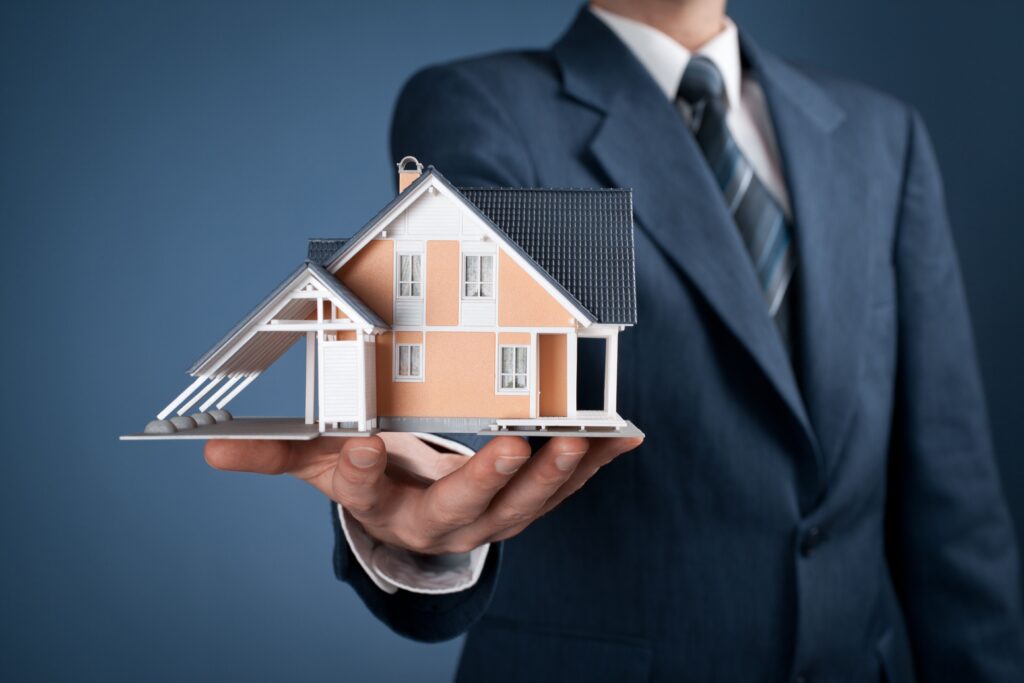As technology becomes more integrated into our daily lives, real estate developers and investors are increasingly focusing on tech-enabled properties to meet the demands of modern buyers and renters. These techno property in real estate include a wide range of innovations that can drastically improve living experiences, efficiency, and the overall value of a property.

1. Smart Home Integration
- Smart Lighting & Thermostats: Devices such as Nest Thermostats or Philips Hue lights allow homeowners to control the temperature and lighting with voice commands or mobile apps. This adds a layer of convenience and efficiency, ensuring the home is always at an ideal temperature or lighting condition.
- Security Systems: Modern homes come equipped with integrated security systems like Ring doorbells, smart locks, and motion sensors that allow homeowners to monitor their properties remotely. Video surveillance through cameras or doorbell systems allows residents to access footage via apps on mobile devices, providing peace of mind whether they are at home or away.
- Voice Assistants: Devices such as Amazon Alexa, Google Assistant, and Apple HomePod are central to the experience of smart homes. These voice assistants can control lights, music, thermostats, and even connect to kitchen appliances, making it easier for residents to interact with their living spaces.
2. Sustainability and Energy Efficiency
- Solar Power Systems: Many techno properties in real estate are integrating solar panels on the rooftops to generate renewable energy. Solar energy reduces dependence on the grid, which can lower utility costs and make the property more attractive to environmentally conscious buyers.
- Smart Water Management: Tech-enabled water systems, such as rainwater harvesting systems or water-efficient appliances, are becoming common. These technologies help conserve water, lower utility bills, and are appealing to buyers interested in sustainability.
- Energy-Efficient HVAC Systems: The integration of smart thermostats, such as the Nest Learning Thermostat, helps manage heating and cooling, reducing energy consumption. These devices can learn your behavior patterns and adjust temperatures based on your schedule, improving energy efficiency while enhancing comfort.
3. High-Speed Internet & Connectivity
- Fiber Optic Internet: Properties with fiber optic broadband offer extremely fast internet speeds, which are crucial for activities like streaming high-definition content, video conferencing, and running multiple smart devices simultaneously.
- IoT Integration: The Internet of Things (IoT) refers to the network of connected devices that can communicate with each other. In techno property in real estate, IoT integration allows smart devices (lights, security cameras, refrigerators, etc.) to work together seamlessly. For instance, a homeowner can remotely lock the doors, adjust the thermostat, and check security cameras all from one app.
- 5G Connectivity: As 5G networks roll out globally, future homes and commercial properties will feature 5G infrastructure, delivering faster internet speeds and more reliable connectivity for tech-dependent lifestyles.
4. Advanced Security Systems
- AI-Powered Surveillance: Modern homes may include surveillance cameras that use artificial intelligence (AI) to analyze footage and detect unusual behavior, like unauthorized persons or vehicles. These systems can send alerts to the homeowner’s phone or even to the police in real-time.
- Biometric Security: High-end techno properties are increasingly using biometric technology such as fingerprint scanners or facial recognition systems for door entry. This can replace traditional key systems, offering a higher level of security.
5. Building Automation and Smart Energy Management
Beyond individual homes, developers are integrating advanced technologies into entire buildings for better energy management and automation, known as Building Automation Systems (BAS).
- Centralized Control: Techno properties in commercial or residential complexes often feature centralized control systems that monitor and manage lighting, HVAC, and other systems for efficiency. These systems automatically adjust based on occupancy or environmental conditions, ensuring minimal energy use when the building is unoccupied.
- Energy Storage Systems: Some properties use energy storage solutions (such as battery storage systems) to store excess energy generated by solar panels for later use. This can help reduce reliance on the grid during peak hours and optimize energy usage.
6. Smart Appliances
Techno property in real estate often feature smart appliances that are internet-connected and can be controlled remotely.
- Smart Kitchens: Devices such as smart refrigerators that can track food inventory, order groceries, and provide recipes are becoming more common. Similarly, smart ovens and dishwashers offer features that allow users to control and schedule operations remotely, making home life easier and more efficient.
- Robotic Cleaning Devices: Robotic vacuum cleaners and mops that clean floors autonomously are another example of tech in homes. These devices help maintain cleanliness with minimal manual effort and can often be controlled or scheduled via an app.
7. Impact on Property Value and Marketability
- Higher Resale Value: Properties with cutting-edge technology often appreciate faster in value, as the integration of advanced features makes them stand out from traditional homes.
- Appeal to Younger Buyers: Younger generations, especially Millennials and Gen Z, are driving demand for homes that offer the latest in tech features. For these groups, smart home features are not just an added luxury but an expected part of modern living.
- Increased Rentability: For rental properties, techno features can lead to higher rental prices due to the added convenience, security, and efficiency. These properties also attract tenants who prioritize modern amenities and smart living.

